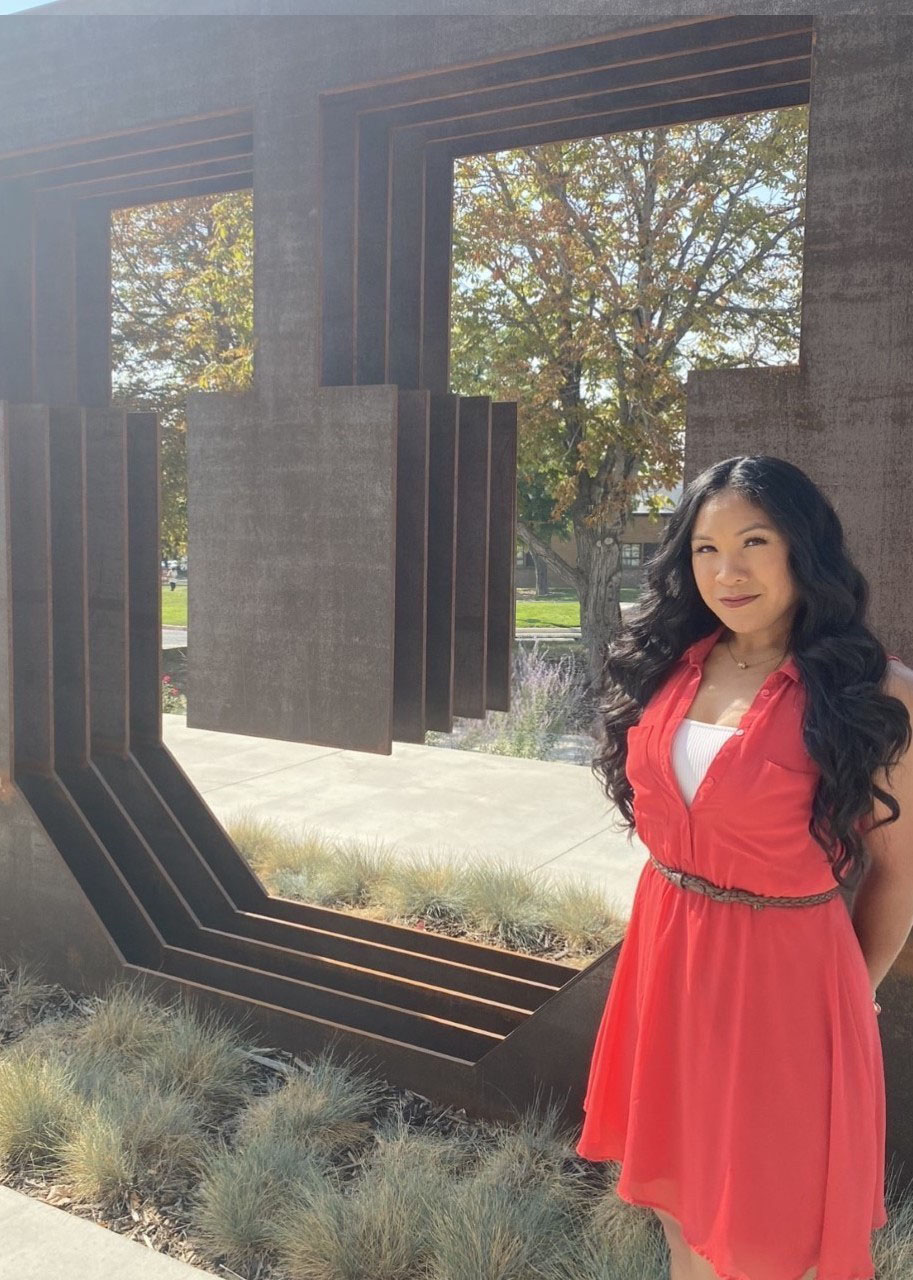
Amery Kongphouthakhoun felt like an outsider. A first-generation college student from Laos, she didn’t set foot on Utah’s campus until the first day of classes. She didn’t have any connections and she thought she should keep her head down and her opinions to herself.
Just a few years later, she’s transformed into a driven, confident leader who’s making a huge difference in the lives of Title One and first-generation students—and it all started by sitting in one kinesiology class.

A Difficult Path
“I didn’t know anyone with a college degree, and I was completely alone,” she said. “The imposter syndrome was really strong. I was pursuing a degree in medical laboratory science (MLS), but I was miserable.”
Kongphouthakhoun’s family is from Laos, and they moved to Utah for better opportunities when she was young. They’ve been in Salt Lake City ever since, and she attended schools on the west side through high school.
Because she’s the first in her family to attend college, she didn’t explore any majors or careers—instead, she chose the MLS program to fulfill her parents’ dream that she’d become a doctor. But after three years of frustration, it was clear that the program wasn’t a good match.
“I was struggling because I didn’t know where to go,” she said. “Luckily, by that time I had a family friend who was also going to the U, and I told him my situation. He knew I enjoyed exercise and working with people, so he brought up the kinesiology department.”
A Life-Changing Encounter
After sitting in on a class, Kongphouthakhoun was hooked. She switched her degree plan to kinesiology, and that’s when she met Janet Shaw, PhD. The connection turned into mentorship, and it’s essential to her success in the department.
“Dr. Shaw saw something in me that I didn’t even see in myself when I switched,” she said. “I was just trying to graduate, get my degree and go to work. She saw there was something there and mentored me all the way through my graduation with a master’s degree.”
Kongphouthakhoun ended up excelling in kinesiology, and once she got into graduate school, she created a pilot program for Title One schools. “Gym Time is Our Time” brought a physical education program to aftercare program students at the end of the school day—students who weren’t receiving any formal education in the area.
“There was no educator there, they were just sitting and playing on their phones,” she said. “I created a 1-5 scale and when they checked in, they’d usually put themselves at a one. By the end of the hour, they’d be up to a five.”
Despite its promise, the program was short-lived. The COVID-19 pandemic hit shortly after it started, and in-person programming shut down. Kongphouthakhoun had hoped to present to the school district and create an ongoing physical education program that could be implemented in all Title One schools. Instead, she went back to the drawing board.
“I was struggling to find a job, all the jobs I could get were in person, working in clinics,” she said. “So, I started looking at other positions offered on campus. I knew I liked working with students, particularly those from the westside who are underserved. I found my position, applied, got it, and have turned it into a monster.”
A Passion for Serving Students
That position is Programs Manager with the University’s Office of Engagement. Only two years into the job, Kongphouthakhoun is already in charge of three different programs that connect with Title One and first generation prospective and current students.
“I oversee three college access programs and the majority of students I work with are from Title One schools,” she said. “I want to help prevent some of the struggles that I went through when I started attending college and help them envision pursuing education.”
Defining Your Paths brings elementary school students on campus for a college field trip, with workshops, tours and lunch. Project Youth trains undergraduate students to go to elementary schools and teach a curriculum Kongphouthakhoun has created for fifth and sixth graders, instilling confidence to pursue higher education. And Counsel on Student Access brings together first-generation undergraduate students so they can create resources and presentations for incoming students.
“There’s so much potential in all three of these programs,” she said. “With the help of other first-generation college students, I’m able to run them and give back in every way possible.”
Kongphouthakhoun credits much of her success today to her switch to the College of Health. Thanks to the connections she made in kinesiology, she was able to find academic success, find her voice and start making a big difference.
“I’ll be honest, during school I’d always try to hide in a corner or whisper answers to questions,” she said. I thought I got there because I was lucky, not because I earned it. But my experience in my master’s program brought me out of my shell.”
Using what she’s learned as leverage, Kongphouthakhoun has been able to connect with school districts and Title One schools—not an easy task as an outsider. Now she presents in front of hundreds of people and reaches thousands of students, opening doors in the Salt Lake City community.
“I can still get intimidated when I talk to professors or higher ups, I have so many ideas and opinions but get scared to share them,” she said. “But I’ve experienced so much, and I wouldn’t be where I am now if I hadn’t found my voice in graduate school.”
By Sarah Shebek